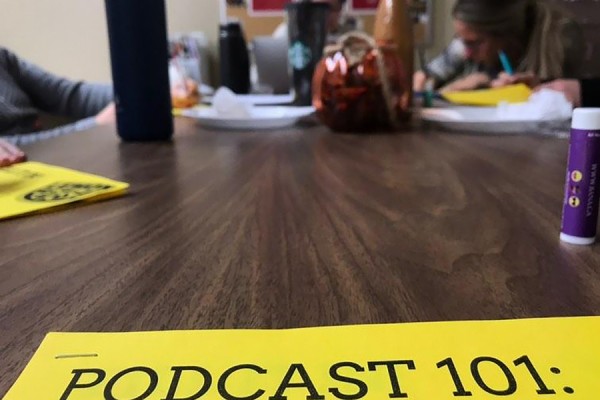 Research by a UWindsor PhD candidate informs a podcast exploring topics of body image, body shaming, and self-confidence.
Research by a UWindsor PhD candidate informs a podcast exploring topics of body image, body shaming, and self-confidence.
Doctoral student Sara Santarossa’s research on mother-daughter pairs is seeing practical application in new resources for the Bulimia Anorexia Nervosa Association (BANA).
Funded by the Social Sciences and Humanities Research Council in conjunction with a Mitacs grant, the studies are the basis of new resources to support BANA in its promotion and acceptance of diverse body shapes and sizes through the adoption of a healthy, balanced lifestyle.
Santarossa embarked on her masters and doctorate journey through a simple observation. Sparked by a social media exchange between a mother and daughter, a question emerged about the influence mothers can have on their daughters’ attitudes on appearance, behaviour, and body image. Under the direction of associate professor Sarah Woodruff, she began investigating the relationship between mothers and daughters and the formation of attitudes about body image, behaviours, and self-esteem.
The research suggests mothers can knowingly and unknowingly influence the attitudes and behaviours of their daughters in social media platforms, and in creating a forum for discussion, it gives the opportunity for them to hear and develop respect for each other.
Her findings were the foundation for a series of workshops and a podcast entitled “Be Yourself: Happy. Healthy. Hopeful,” hosted by BANA health educator Stephani Fenkanyn. The podcast was formed from one of the five themes that emerged from the research, exploring topics of body image, body shaming, and self-confidence, hoping to be a catalyst to conversation between mothers, daughters, and friends.
Mitacs funding provided resources to create the workshops, facilitated by BANA, for moms and daughters providing a platform on which to start conversations about these topics and foster a supportive and understanding relationship.
Luciana Rosu Sieza, executive director of BANA Windsor, said she hopes these sessions and podcasts become a “platform to have some real conversations around topics of social media, body image, self-esteem, and eating disorders and that the podcast can take on a life of its own beyond the initial funding.”
Santarossa will present her research in her PhD dissertation defence on March 23.
—Martin Vaughan
